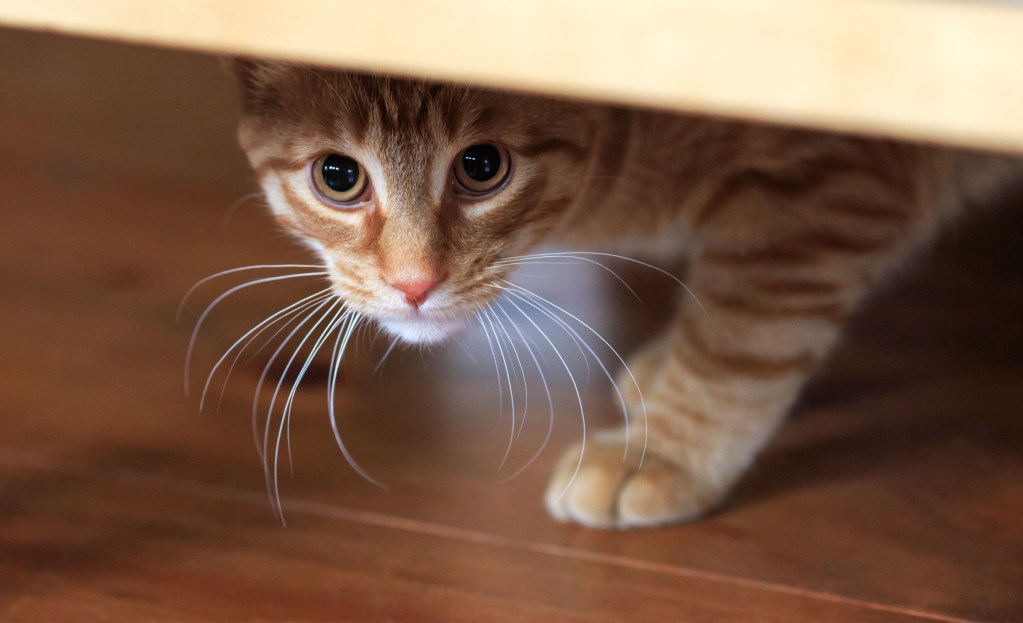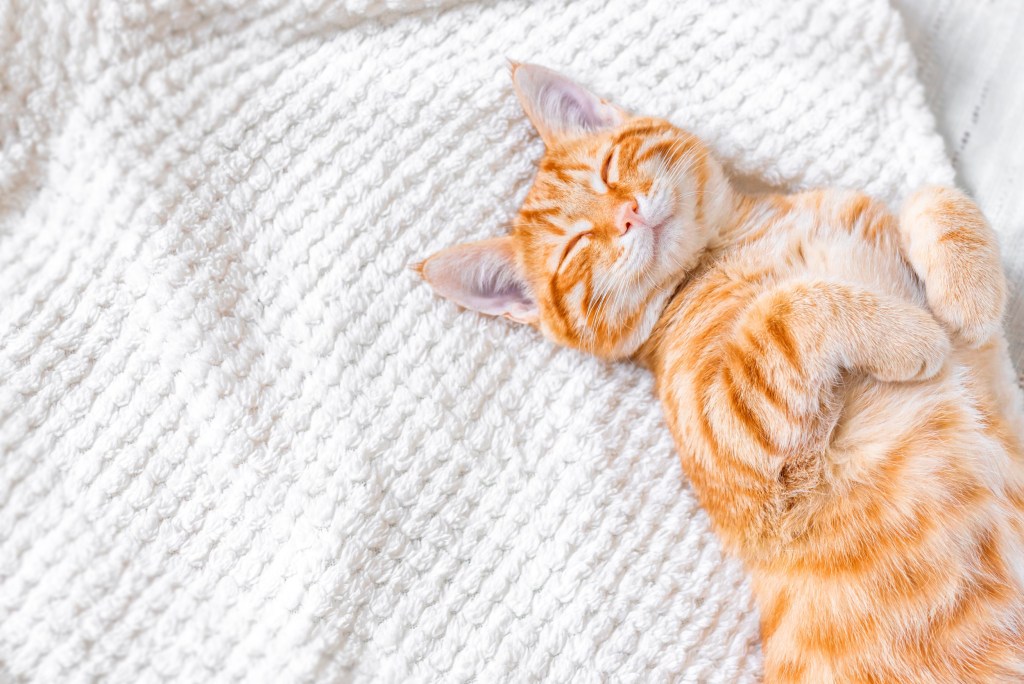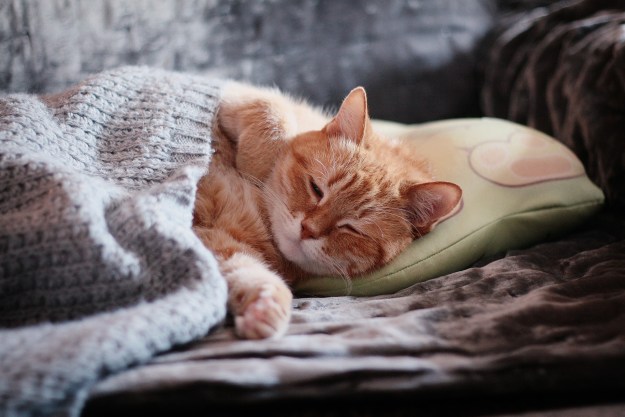
Even the most unabashed cat apologist has to admit it: Felines are a bit of a jumpy lot.
But there’s a difference between startling when a balloon pops and being afraid of your own shadow, and sometimes a cat’s behavior falls into the latter category.
That’s when the conscientious cat owner springs into action. How can you tell whether your cat is truly “scared of everything” and determine potential causes and plans of action?

Signs your cat may be afraid
There are few tell-“tail” giveaways that your beloved pet is feeling fear. However, not all of them are obvious. Although nearly all these symptoms have multiple potential causes, these are some of the most frequent behaviors that might clue you in on whether you suddenly have a scared cat:
- Going to the bathroom outside the litter box
- Swishing or abnormally moving tail
- Crouching
- Hiding
- Dilated pupils
- Flat or twitching ears
- Arching her back and “puffing up”
- Running from room to room
Why is my cat suddenly scared?
As we haven’t yet figured out how to speak to cats, it’s hard to say with any certainty.
However, potential clues may be out there. The first thing to examine is the cat’s immediate living environment. Has anything changed lately? Is there a new roommate or a new pet? Is your feline friend herself new to the home? Change can be scary for pets, especially if they have trauma in their past.
It’s also possible your kitty may have had a change in health status. If your furry feline seems to be avoiding you or just the world in general, or if the behavior becomes erratic in any way for extended periods of time, your cat could have a health problem. Consider that behavior a sign to set up an appointment with your veterinarian to learn more about what’s going on.

How to relax your cat
Again, there’s no surefire roadmap here, but there are several ways to keep your cat from not only being scared but lapsing into the bad habits that can go along with the feeling.
Some possibilities include:
- Make sure your kitty always has adequate food and water and a clean litter box.
- If your cat repeatedly hides in specific places, try to gently block access to these spots and get your pet out into more social spaces.
- Place the food dish, water bowl, and litter box in open, quiet parts of your living space, but don’t move them around too much after you’ve settled on a spot.
- Create comfortable resting places for feline use only. Use cushions, blankets, or even your old clothes — get creative!
- Spend time with your pet, both cuddling and playing. Make sure your bond with your cat is strong.
Cats do a lot of silly things, and usually those things don’t amount to anything more than a moment of amusement. But if your cat is suddenly scared of everything, it’s important to understand potential warning signs and causes, so you can plan solutions that get you and your feline purring again.
Editors' Recommendations
- Wondering why cats chirp? Fascinating reasons why your cat chirps at birds (and you)
- How to cat-proof your balcony before the unthinkable happens
- There’s a totally normal reason cats throw up after eating grass – here’s why
- What you need to know about crating a cat at night
- Why doesn’t my cat meow? Here are 5 reasons why your feline friend is silent





